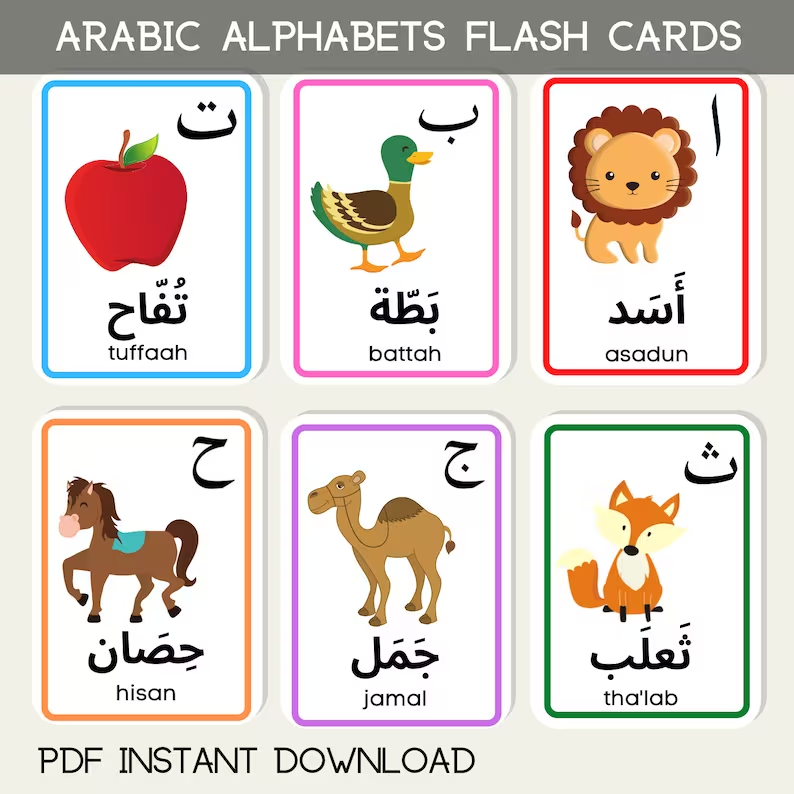Common Challenges in Learning Arabic. Any Solutions?
By: Gabriela Sarmiento
When it comes to learning a foreign language, there are always certain challenges that can make the process difficult—especially when it comes to Arabic. Have you ever wondered what the most common struggles learners face are? Below, we break down some of them in detail and provide practical solutions to help you on your journey toward mastering this rich and ancient language.
1. The Arabic Alphabet and Writing System

The Arabic alphabet is completely different from the Latin script, requiring learners to adapt to new letter shapes and a right-to-left writing direction. To overcome this challenge, try these strategies:
- Practice systematic calligraphy: Use handwriting workbooks to regularly practice letter formation.
- Associate letters with sounds: Creating mental links between letters and their sounds aids memorization.
- Use flashcards: Create cards with letters and words to review vocabulary and writing.
- Try interactive apps: Mobile apps can make writing practice engaging and effective.
2. Pronunciation
Arabic sounds can be very different from those in other languages, and mastering long and short vowels is crucial. Here’s how to improve:
- Listen to native speakers: Music, podcasts, and videos help you absorb natural pronunciation.
- Use audiovisual resources: Watch videos with subtitles to connect spoken and written Arabic.
- Practice with a native speaker: Conversation with a tutor or language partner accelerates learning.
3. Grammar

Arabic grammar can be complex, with many rules and exceptions. Simplify the process by:
- Focusing on basics first: Start with common sentence structures and parts of speech.
- Using diagrams and charts: Visual aids help clarify grammatical rules.
- Identifying patterns: Solve grammar exercises to recognize recurring structures.
4. Vocabulary
Expanding your Arabic vocabulary can feel overwhelming. Try these methods:
- Create themed word lists: Organizing words by topic aids memorization.
- Use flashcards: Review words and translations regularly.
- Read Arabic texts: Start with level-appropriate material to naturally grow your vocabulary.
- Try vocabulary apps: Digital tools make flashcard review efficient.
5. Lack of Practice Opportunities

Finding chances to practice Arabic can be tough, especially outside Arabic-speaking countries. Solutions include:
- Joining conversation groups (online or local).
- Hiring an online tutor or taking private lessons with a native speaker.
- Using language exchange apps to connect with native Arabic speakers.
Bonus Tips for Success
- Set a daily study routine: Consistency is key.
- Set realistic goals: Progress takes time—celebrate small wins!
- Embrace mistakes: They’re part of the learning process.
- Diversify resources: Combine textbooks, apps, videos, and podcasts.
- Immerse yourself in Arab culture: Music, films, books, and cultural events make learning fun!
Ready to Start Your Arabic Journey?
If you’re eager to begin, AlifBee is your perfect companion. Join our community of Arabic learners and share your progress with others!



